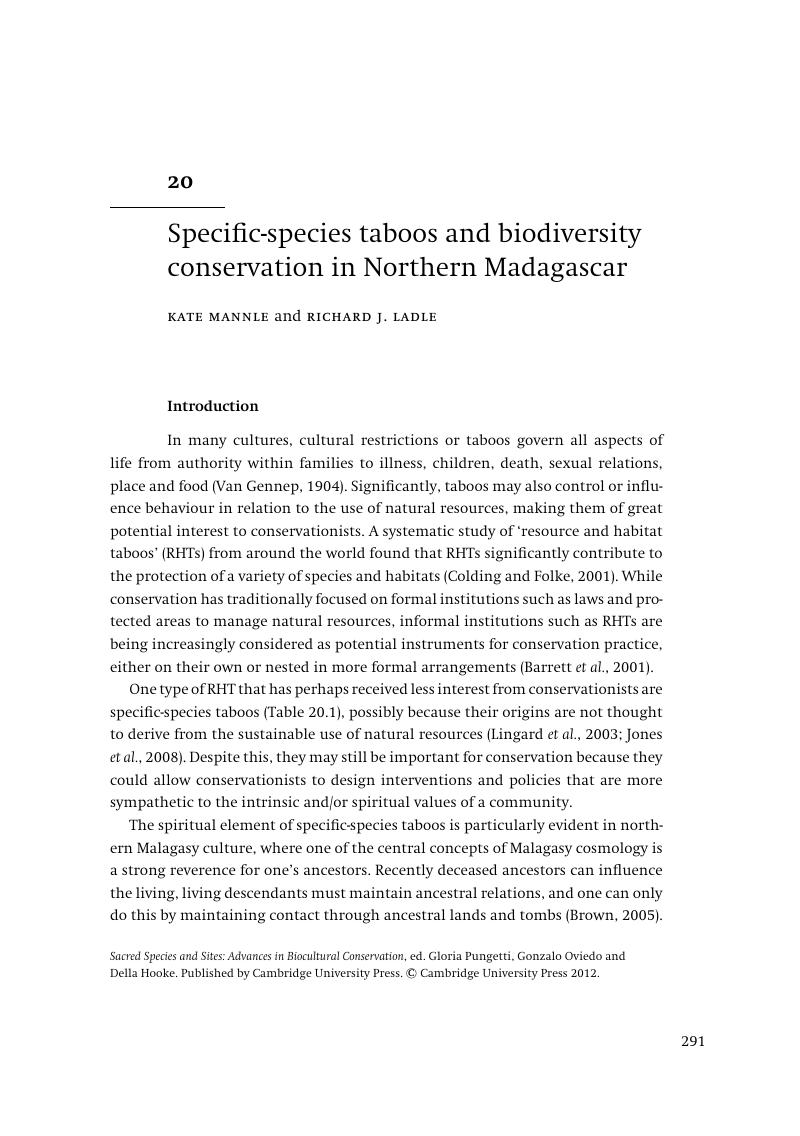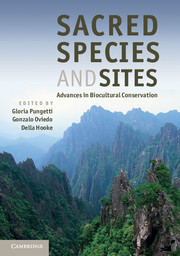Book contents
- Frontmatter
- Contents
- List of Contributors
- Foreword
- Preface
- Acknowledgements
- Introduction
- Part I Concepts and Knowledge
- Part II Sacred Landscapes
- Part III Sacred Sites and People
- Part IV Sacred Species
- Part V Sacred Animals
- 17 Genealogy of the sacred: Maori beliefs concerning lizards
- 18 Pheasant conservation, sacred groves and local culture in Sichuan, China
- 19 The bear cult among the different ethnic groups of Russia (sacred Russian bear)
- 20 Specific-species taboos and biodiversity conservation in Northern Madagascar
- Part VI Sacred Groves and Plants
- Part VII Implementation and Conclusions
- Index
- Plate Section
- References
20 - Specific-species taboos and biodiversity conservation in Northern Madagascar
from Part V - Sacred Animals
Published online by Cambridge University Press: 05 August 2012
- Frontmatter
- Contents
- List of Contributors
- Foreword
- Preface
- Acknowledgements
- Introduction
- Part I Concepts and Knowledge
- Part II Sacred Landscapes
- Part III Sacred Sites and People
- Part IV Sacred Species
- Part V Sacred Animals
- 17 Genealogy of the sacred: Maori beliefs concerning lizards
- 18 Pheasant conservation, sacred groves and local culture in Sichuan, China
- 19 The bear cult among the different ethnic groups of Russia (sacred Russian bear)
- 20 Specific-species taboos and biodiversity conservation in Northern Madagascar
- Part VI Sacred Groves and Plants
- Part VII Implementation and Conclusions
- Index
- Plate Section
- References
Summary

- Type
- Chapter
- Information
- Sacred Species and SitesAdvances in Biocultural Conservation, pp. 291 - 304Publisher: Cambridge University PressPrint publication year: 2012
References
- 2
- Cited by



